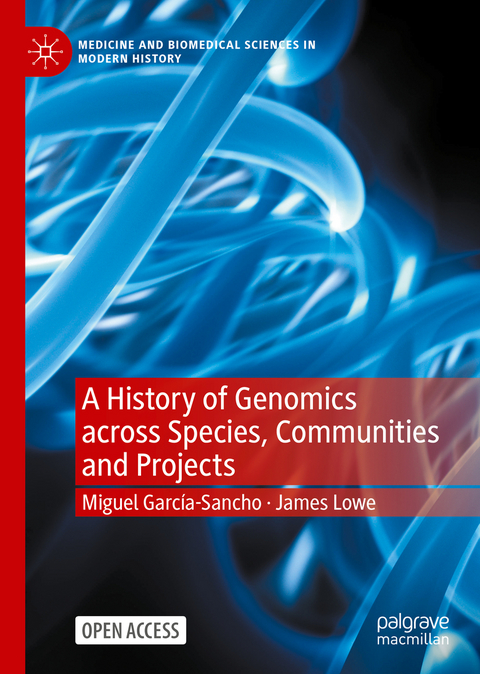
A History of Genomics across Species, Communities and Projects
Springer International Publishing (Verlag)
978-3-031-06129-5 (ISBN)
Exploring the use of genomic tools by biochemists, cell biologists, and medical and agriculturally-oriented geneticists, this book portrays the history of genomics as inseparablyentangled with the day-to-day practices and objectives of these communities. The authors also uncover often forgotten actors such as the European Commission, a crucial funder and forger of collaborative networks undertaking genomic projects. In examining historical trajectories across species, communities and projects, the book provides new insights on genomics, its dramatic expansion during the late twentieth-century and its developments in the twenty-first century. Offering the first extensive critical examination of the nature and historicity of reference genomes, this book demonstrates how their affordances and limitations are shaped by the involvement or absence of particular communities in their production.
Miguel Garcia-Sancho is a Senior Lecturer at the University of Edinburgh in the UK. He led the project 'TRANSGENE: Medical Translation in the History of Modern Genomics', with funding from the European Research Council. James Lowe is a Senior Research Fellow at the University of Edinburgh in the UK. He is a historian and philosopher of biology who worked on the European Research Council-funded project 'TRANSGENE: Medical Translation in the History of Modern Genomics'.
Chapter 1. Introduction.- Part I. The Diversity of Genomics.- Chapter 2. Distributed and Concentrated Strategies in the Sequencing of the Yeast Genome.- Chapter 3. The Human Genome Project(s).- Part II. Communities and Reference Genomes.- Chapter 4. The Funnelling Effect of the Sanger Institute.- Chapter 5. The Pig Community and Their Reference Genome.- Part III. Contextualising and Enhancing Reference Genomes.- Chapter 6. Making Reference Genomes Useful: Annotation.- Chapter 7. Improving and Going Beyond Reference Genomes.- Chapter 8. Conclusion.
"These new accounts of various genome projects, based on new interviews and archival work, should stand in their own right as important contributions to the history of sequencing. García-Sancho and Lowe frame these stories as contributions to an explicitly revisionist history of genomics. ... the book's revisionist argument hinges on an expansive definition of genomics that seeks to include a wide range of practices related to medicine and agriculture." (Hallam Stevens, Journal of the History of Biology, Vol. 57 (1), 2024)
| Erscheinungsdatum | 05.04.2023 |
|---|---|
| Reihe/Serie | Medicine and Biomedical Sciences in Modern History |
| Zusatzinfo | XVI, 380 p. 26 illus., 13 illus. in color. |
| Verlagsort | Cham |
| Sprache | englisch |
| Maße | 148 x 210 mm |
| Gewicht | 642 g |
| Themenwelt | Geisteswissenschaften ► Geschichte ► Allgemeine Geschichte |
| Studium ► Querschnittsbereiche ► Geschichte / Ethik der Medizin | |
| Naturwissenschaften | |
| Schlagworte | Annotation • European Commission • Genome Mapping • High throughput sequencing technology • human DNA • open access • Pig DNA • Saccharomyces cerevisiae • sequence assembly • Sus scrofa • Whole-genome projects • yeast |
| ISBN-10 | 3-031-06129-2 / 3031061292 |
| ISBN-13 | 978-3-031-06129-5 / 9783031061295 |
| Zustand | Neuware |
| Haben Sie eine Frage zum Produkt? |
aus dem Bereich


